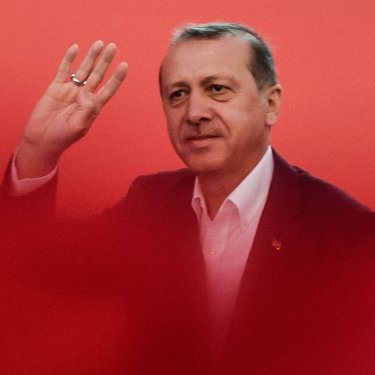Turkey – world leader in imprisoned journalists

The witchhunt launched in the wake of the 15 July coup attempt in Turkey continues to take a heavy toll on journalists. In the draconian state of emergency imposed after the abortive coup, the authorities have closed more than 100 media outlets critical of the government, placed 42 journalists in provisional detention and banned many others from travelling abroad.
Detained journalists
“The 42 newly detained journalists combined with those who were already in prison before the abortive coup makes Turkey the world champion in imprisoned media personnel,” said Johann Bihr, the head of the Eastern Europe and Central Asia desk at Reporters Without Borders (RSF).
“How can a supposedly democratic country surpass even China and Iran in order to take this title? How can the coup investigation justify these increasingly severe measures against so many journalists? A media outlet’s editorial positions do not prove that its staff collaborated in the coup attempt. Jailing journalists because of their opinions, and without regard for their health or family situation, is unacceptable and unworthy of the Turkish people’s manifest commitment to democracy.”
After an initial period in police custody, the 42 journalists (complete list available here) were formally placed in provisional detention as part of the investigation into the abortive coup.
Seventeen of them, including well-known TV presenter Nazlı Ilıcak, were detained on 30 July on charges of belonging to the “FETÖ,” the acronym used by the government to brand the movement headed by US-based Turkish cleric Fethullah Gülen as a “terrorist” organization.
Six journalists who used to work for the daily Zaman were detained the next day on suspicion of “praising a terrorist organization” and “legitimizing the coup attempt.” They included former Zaman columnist Şahin Alpay. Twelve more journalists, including former Zaman columnist Mümtazer Türköne, were detained on 4 August.
Most of the six journalists arrested on 31 July are elderly and ill. Essentially, they are accused of continuing to work for Zaman after its editor, Ekrem Dumanlı, was placed under investigation on suspicion of belonging to the Gülen Movement because of his newspaper’s coverage of corruption allegations against several members of the government.
In their statements, the six journalists did little more than recount their journalistic careers and political positions, and point out that these were incompatible with any support for the abortive coup. The judge cited the fact that Dumanlı is now a fugitive from justice as grounds for detaining them. The defence pointed out that this violated the principle of individual criminal responsibility.
Passport seizures and cancellations
Journalist Hayko Bağdat’s passport was confiscated on landing at Istanbul airport on 6 August at the end of a trip abroad. It was only after lawyers and opposition parliamentarians interceded that he was finally able to recover his passport three days later.
The passports of many other journalists such as Eren Keskin have been cancelled without their being given any explanation. When Selina Doğan, a representative of the opposition party CHP, contacted the police, they said it was a “preventive measure” that would probably be lifted when investigations had been concluded.
Some of the affected journalists nonetheless said their passports were cancelled as a result of their having been reported lost or stolen – reports they had not made.
Social networks not spared
At the end of July, an Ankara judge ordered the blocking of the Twitter accounts of dozens of supposedly pro-Gülen journalists and media outlets (such as Faruk Mercan, Emre Uslu, MerkürHaber, SamanyoluMedya and KanalTürk TV), pro-Kurdish media outlets (such as Özgür Gündem and DİHA) and other journalists (including Rifat Doğan, Gökçe Fırat and Feyzi İşbaşaran).
The Twitter account of Amnesty International’s Turkey representative, Andrew Gardner, was among those affected. Reached by RSF’s Turkey representative, he described the decision as “stupid but serious.” He said he would challenge the measure but regretted having to lose time on this when he was already “very busy verifying the many cases of torture and free speech violations.”
Turkey is ranked 151st out of 180 countries in RSF’s 2016 World Press Freedom Index.
Read RSF’s previous releases on the abortive coup and its consequences here



